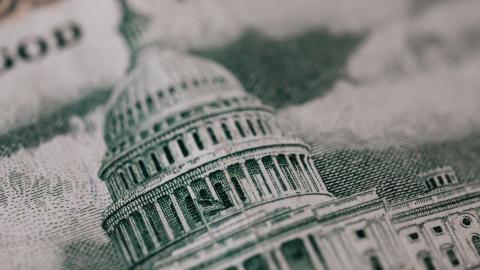Consider the reason why the U.S. dollar retains its dominance despite the declining U.S. share of global GDP and ongoing concerns about the size of U.S.-denominated debt, not to mention the divisive politics in Washington.
For starters, the greenback is fully tradable on international foreign exchange markets. There are no capital controls restricting the purchase or sale of the dollar. With the deepest and most developed financial and debt market in the world, buying and selling the greenback is easy, efficient, and transparent.
This immediately restricts the capacity of alternatives such as the Chinese RMB to assume the role of genuine global currency, let alone the dominant one. Given its determination to capture national savings and retain central control over the country’s deployment of capital, Beijing is committed to a closed capital account and cannot risk RMB fleeing the country. Paranoid about instability resulting from the ups and downs of a liberalized economy and resulting fluctuations in the value of its currency, it will not allow full convertibility of the RMB.
Nor will the Communist Party allow the unrestricted issuing of corporate bonds and other forms of private debt, preventing the emergence of deep and diverse financial markets inside China. Under these circumstances, why would one buy RMB except to trade directly with, or invest in, China?
Moreover, the dominant global reserve currency must serve as a safe store of value and as a way for governments and private entities to park and protect accumulated wealth—especially as geostrategic and economic tensions rise globally. Geopolitically, the United States will remain the leading global material power for some time. Even those who admire Beijing’s model would have doubts about the long-term security of their capital. Those praising the supposed superiority of China’s authoritarian political economy and predicting the RMB will become the dominant global currency would nevertheless be reluctant to park the bulk of their personal assets in China and in RMB-denominated assets. That speaks volumes.
None of this is to play down America’s political and debt problems. But if the U.S. dollar is to be dethroned, what are the alternatives if not the RMB? What about the euro? The problem is that the future of the European Union is less certain than that of the United States. Will Brexit be the last time an EU member leaves the economic bloc? There are significant anti-EU movements in countries such as Sweden and the Netherlands. Even if all continental members stay put having observed the trauma that Britain is going through, the problem for the European Union remains: it is a common monetary and customs union for a motley bunch of sovereign countries with different institutions, attitudes, economic policies, and standards of living and national debt. On almost every sensible long-term risk measure, the United States (and therefore the stability and demand of its currency in the long term) still seems the better long-term bet.















